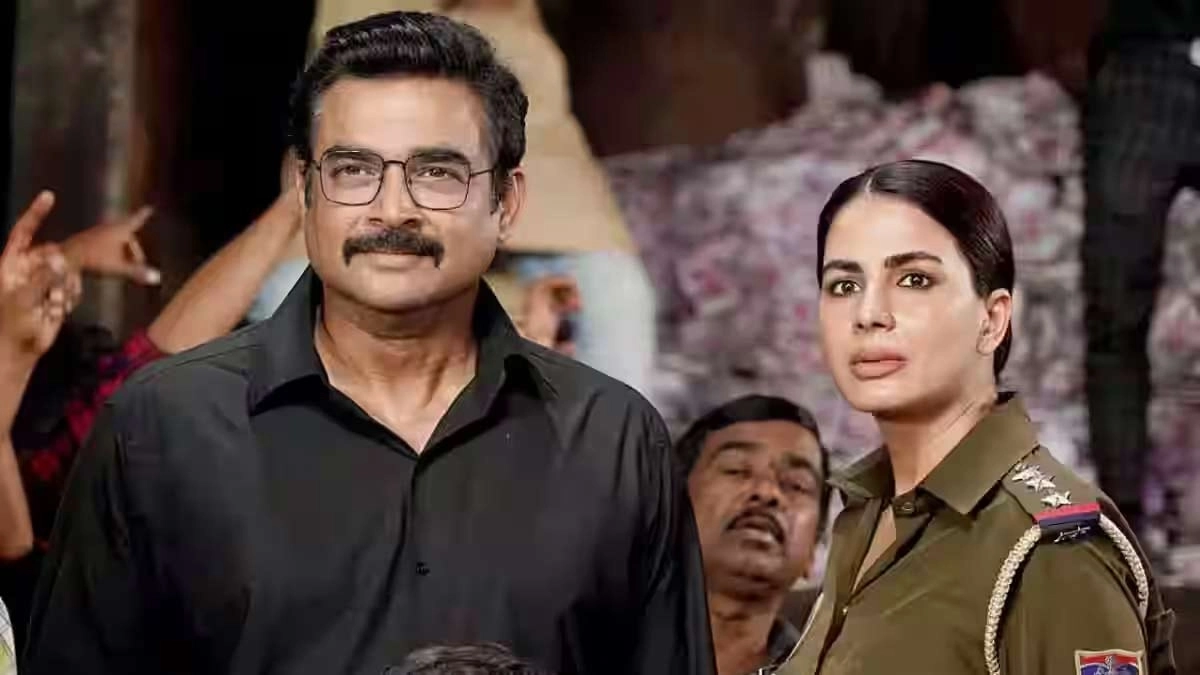
Neil Nitin Mukesh and R. Madhavan come together in Hisaab Barabar, a drama that delves into corruption, societal decay, and the strength of the common man. With a mix of quirky characters, emotional undertones, and social commentary, the film attempts to shed light on the nexus between the banking sector and corrupt politicians.
Overview of Hisaab Barabar
- Lead Cast: R. Madhavan, Neil Nitin Mukesh, Kirti Kulhari
- Directed By: [Director’s Name]
- Genre: Drama, Social Satire
- Runtime: [Duration in Minutes]
- Release Date: [Release Date]
| Specification | Details |
| Lead Actor | R. Madhavan |
| Supporting Actor | Neil Nitin Mukesh |
| Inspector’s Role | Kirti Kulhari |
| Theme | Corruption, Justice |
| Setting | Urban India |
Plot Summary
A Ticket Collector’s Obsession with Numbers
R. Madhavan stars as Radhe Mohan Sharma, a single father and former CA aspirant who has found solace in his role as a meticulous ticket collector. His life revolves around maintaining balance sheets, ensuring the left-hand side equals the right-hand side—a habit that defines his personality.
Radhe’s dedication to numbers extends beyond his job. He uses his mathematical expertise to teach students in a makeshift classroom at the railway station. His journey takes an unexpected turn when a minor discrepancy of Rs. 27.50 at a bank leads him to uncover a massive financial scam.
Mickey Mehta: The Flamboyant Villain
Neil Nitin Mukesh’s Mickey Mehta is a larger-than-life, corrupt politician-turned-banker who believes the “common man is a donkey.” His character adds a layer of flamboyance and arrogance, contrasting sharply with Radhe’s grounded nature. Mickey’s schemes are at the heart of the fraud that Radhe uncovers.
An Unlikely Romance
Radhe’s life intertwines with Inspector Poonam Joshi, played by Kirti Kulhari. A quirky police officer with a striking burgundy hairstyle, Poonam initially rebuffs Radhe’s awkward advances. Despite their differences, the two develop an endearing relationship as they work together to expose the scandal.
Themes and Execution
The Fight Against Corruption
Hisaab Barabar’s central theme revolves around the fight between a common man and a corrupt system. It highlights the courage required to stand against powerful adversaries and sheds light on the unholy nexus between politicians and the banking sector.
Humor and Social Commentary
While the movie attempts to blend humor with social commentary, some of the jokes fall flat. The repetitive use of the phrase “hisaab barabar” feels forced, even appearing in the background score. Despite this, the film’s core message about accountability and justice remains impactful.
Performance
R. Madhavan as Radhe Mohan Sharma
Madhavan’s portrayal of Radhe is heartfelt and engaging. His ability to bring sincerity to his role as a single father and justice-seeker stands out, though he occasionally feels mismatched for the part due to his age.
Neil Nitin Mukesh as Mickey Mehta
Neil Nitin Mukesh’s over-the-top performance as the villain adds a touch of drama. However, his cartoonish portrayal often undermines the gravity of the film’s narrative.
Kirti Kulhari as Inspector Poonam Joshi
Kirti Kulhari’s role as Poonam Joshi provides a refreshing dynamic. Her character, while underutilized, brings a sense of humor and relatability to the storyline.
Strengths and Weaknesses
Strengths
- Strong Social Message: The film successfully critiques systemic corruption.
- Engaging Protagonist: Madhavan’s performance anchors the movie.
- Unique Premise: The focus on numbers and accountability adds a fresh angle.
Weaknesses
- Weak Villain: Mickey Mehta’s character lacks depth.
- Repetitive Elements: The overuse of the phrase “hisaab barabar” feels monotonous.
- Inconsistent Pacing: The narrative occasionally drags, affecting viewer engagement.
Conclusion
Hisaab Barabar attempts to weave an intricate tale of corruption, resilience, and justice. While the execution leaves room for improvement, the film’s core message resonates. It’s a reminder of the power of the common man to bring about change, even against insurmountable odds.







